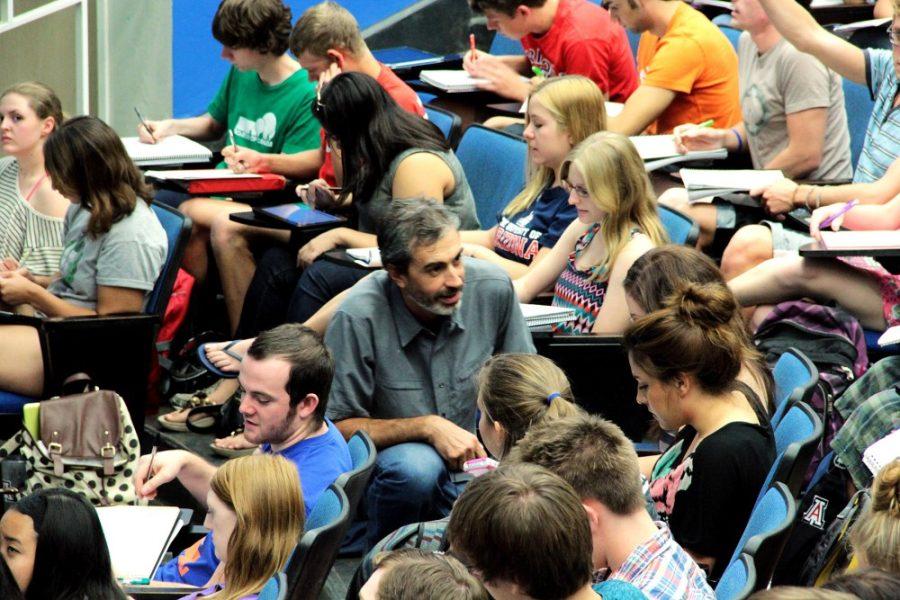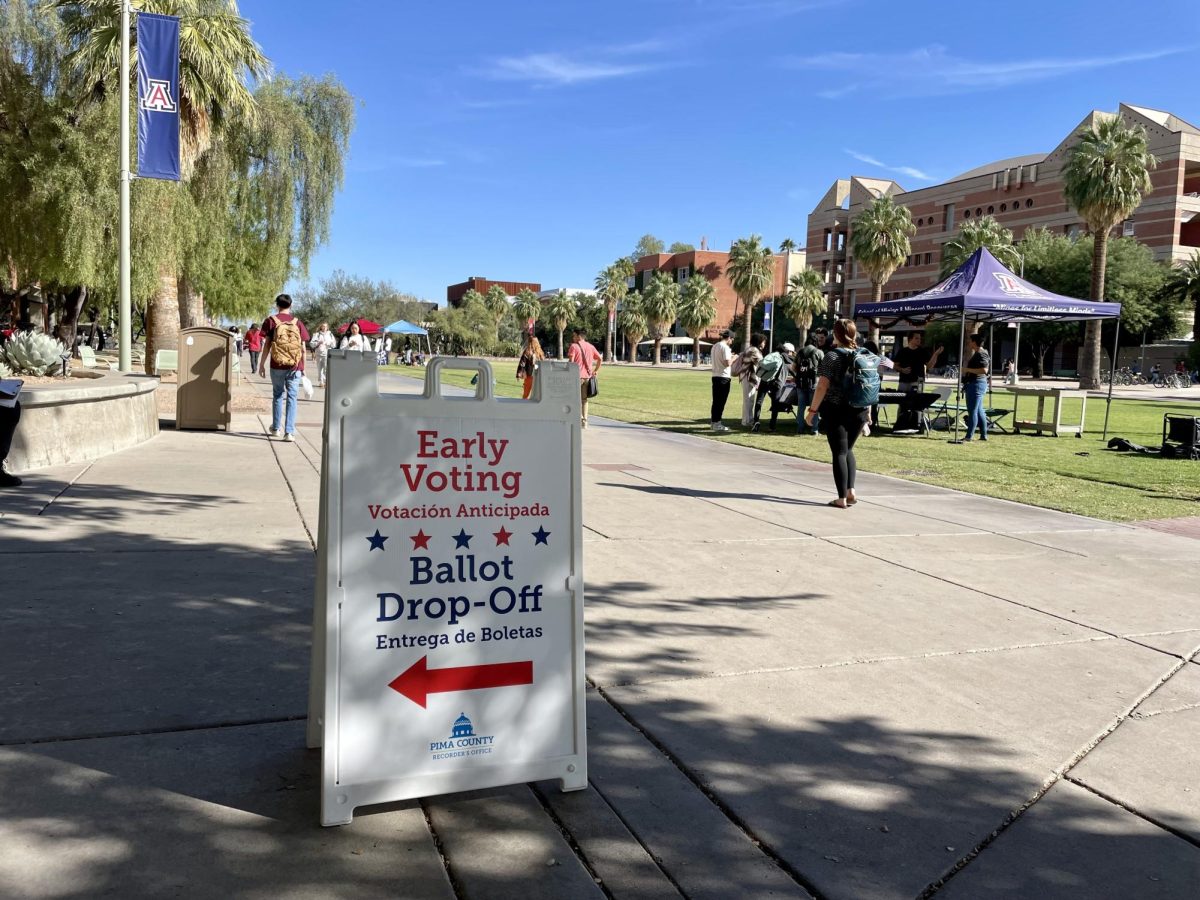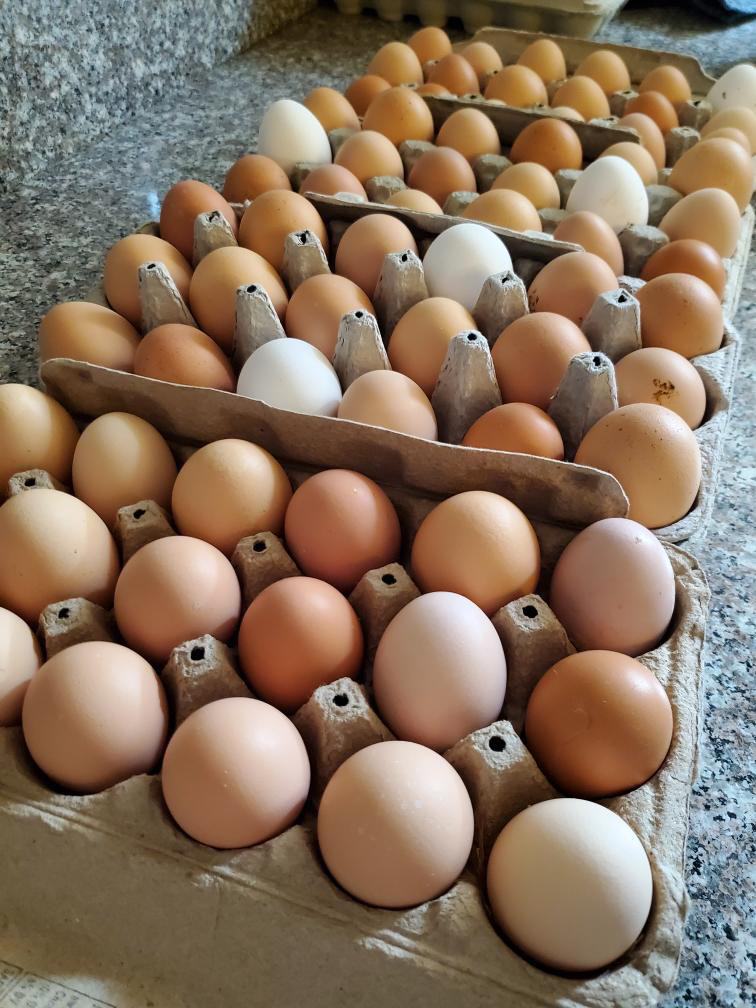Around 6 p.m. on a Friday night, John Pollard locks his office, pulls his beach cruiser through the doors of the Old Chemistry building and rides the two miles to his home.
From morning until night, Pollard, a professor in and coordinator of the general chemistry and biochemistry department at the UA, is dedicated to his students.
“I do three things here,” Pollard said. First, he provides service to the university. Second, he creates materials for his class. Third, he works with students.
“The first two things are equally important, but they all service the third,” he said. “That’s where you have the real impact.”
University
Pollard explained his Friday, a day like many others: “When I get in, the first thing I do is run a TA staff meeting.”
He meets with teaching assistants from every general chemistry course to coordinate their curricula to ensure that every student gets the same strong foundation in chemistry.
He also meets with students conducting Supplemental Instruction sessions. Supplemental Instruction is a program that provides free out-of-class study sessions with students who have previously taken the course to students currently enrolled in the course.
“I’m on various committees, so I have a departmental committee meeting,” Pollard said. As the departmental coordinator, he meets and coordinates with the other chemistry instructors on campus, at a time when other people head for lunch.
Like many entry level courses, Pollard’s classes have preceptors: undergraduate students who are trained to provide help to their classmates. He meets with them after his last class of the day.
“I have over 20 preceptors that help me in my class with my students,” Pollard said, “and some of them have projects that they’re working on, so I’m meeting with students to help with projects.”
Materials
The second focus is developing the materials. Pollard is redesigning the way we teach chemistry by teaching students to think like chemists.
Pollard was unsatisfied with traditional lecture methods.
“Having the students come, sit and listen to me was sort of analogous to having [men’s basketball head coach] Sean Miller have people show his basketball players what to do, and that would be practice,” he said.
Instead, he wanted them on the court — metaphorically speaking. This is where “Chemical Thinking” comes in.
For six years now, Pollard and colleague Vicente Talanquer, an associate professor in the department of chemistry and biochemistry, have been researching how students best learn chemistry. They are writing a curriculum and textbook, both titled “Chemical Thinking,” to adapt their findings for use in the classroom.
The professors are already using the book in its unfinished form, providing it to students free of charge.
Toward the end of the day, Pollard shuts his door and works.
“I do have some days where I have more office time. Work for me is preparing. As you can see, I’m kind of a student of chemistry,” Pollard said as he gestured toward a large bookcase — 8 feet tall and twice as wide — that houses a few hundred books, all of them related to general chemistry.
During this time, he creates materials for his students, which include YouTube videos, study aids and the textbook for the course itself.
But his work isn’t finished when he leaves campus.
“After my kids are in bed, I have a second shift at home where I can actually hole up and get some work done,” Pollard said.
While he does try to spend as much time as possible with his three kids when he’s home, he doesn’t let his free time go to waste.
Students
After class, Pollard often attends club meetings, as he advises three clubs on campus.
Solar Cats, a solar advocacy group on campus, meets every other Monday at 6 p.m. Through various environmental projects and outreach events, the group aims to raise awareness of the necessity of sustainable technologies for the environment.
On Fridays, Pollard meets with the UA Student Affiliates of the American Chemical Society to discuss its outreach programs, aimed at making chemistry more interesting and accessible to youth across Arizona.
Finally, there is Olympia Academy.
“There was a group of students who were getting together regularly and having open discussions about big questions,” Pollard said.
When a student approached him and asked if he would be the adviser for the group’s official club, Pollard sat in on a meeting, and he was impressed.
“For me, sitting around and having students freely — not for credit — spending their time engaging in intellectual discussion was something at the heart of what the university is about,” Pollard said. “I just felt this was a really important thing to support.”
This semester, Pollard is teaching two chemistry courses, and in both he employs the principles of evidence-based teaching, which he describes as “[seeing] the research out there on how students learn and [starting] to implement strategies based on the research into your classroom.”
In 2010, he won the Leicester and Kathryn Sherrill Creative Teaching Award for his work in the Department of Chemistry and Biochemistry. This award recognizes outstanding teaching methodologies, attention to the quality of students’ learning and the adherence to high standards with regard to both scholarly rigor and relevance of material.
That’s a testament to his approach in putting students first, but the awards aren’t as important as the way that he attempts to engage students.
“The fact that he encourages students to participate in class helps keep their attention and reinforces the material in class,” said Christina Yamada, a veterinary science junior who was in his general chemistry class her freshman year.
By putting in extra hours, being a student of chemistry and making his materials and lectures as engaging and informational as possible, Pollard is helping students to make lasting connections with objects too small for the human eye to see.
A Friday in Pollard’s shoes
7:50 a.m. Pollard arrives on campus
8 a.m. Staff meeting with TAs
10 a.m. Class
11 a.m. Supplemental instruction meeting
Noon Departmental meeting
1 p.m. Class
2 p.m. Meet with preceptors
4 p.m. Chemistry Club
6 p.m. Home for the weekend









